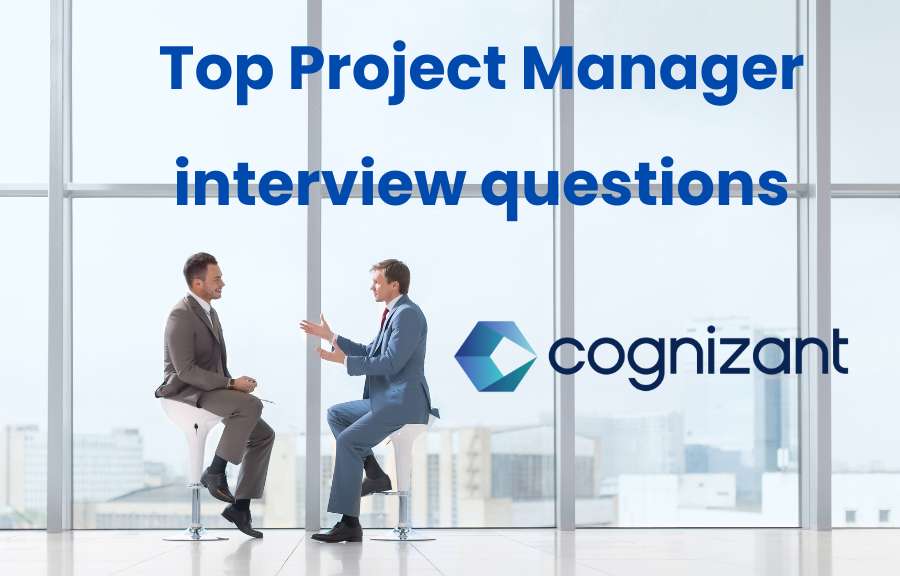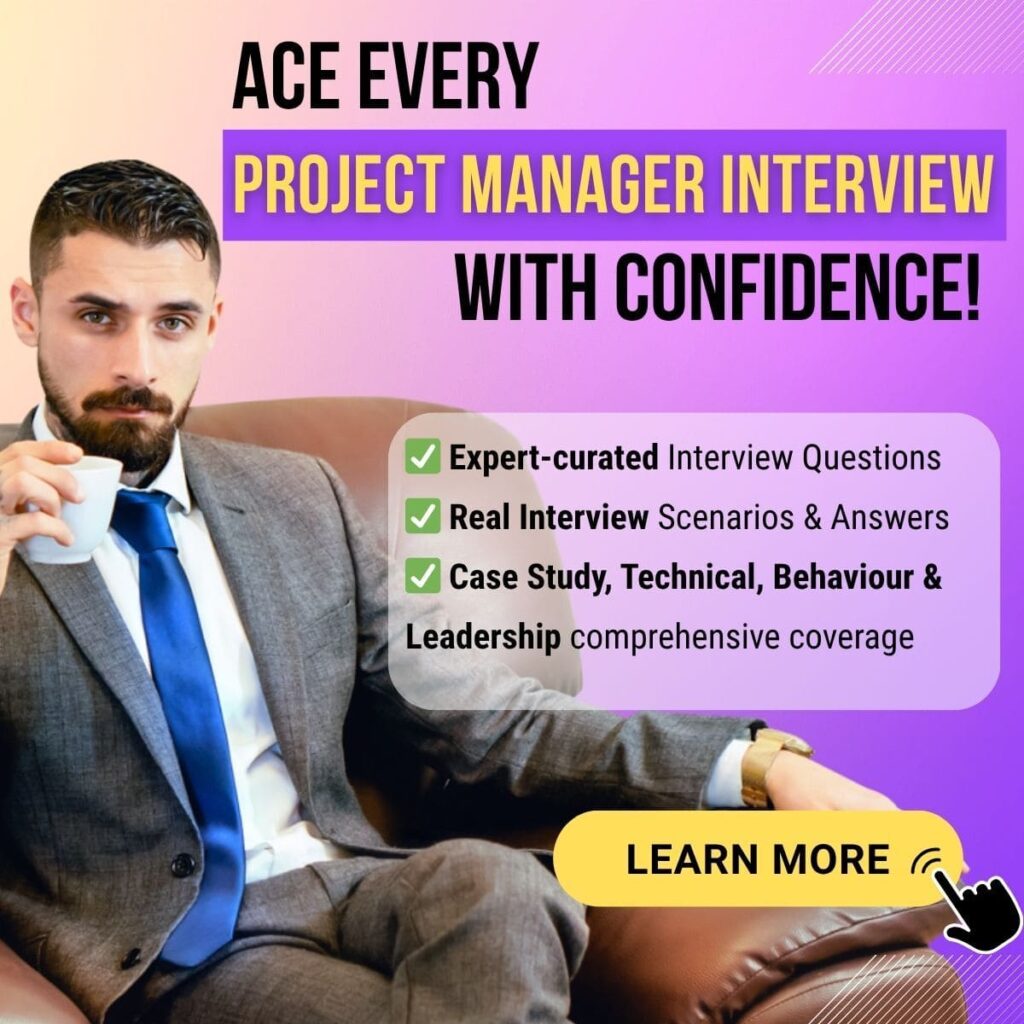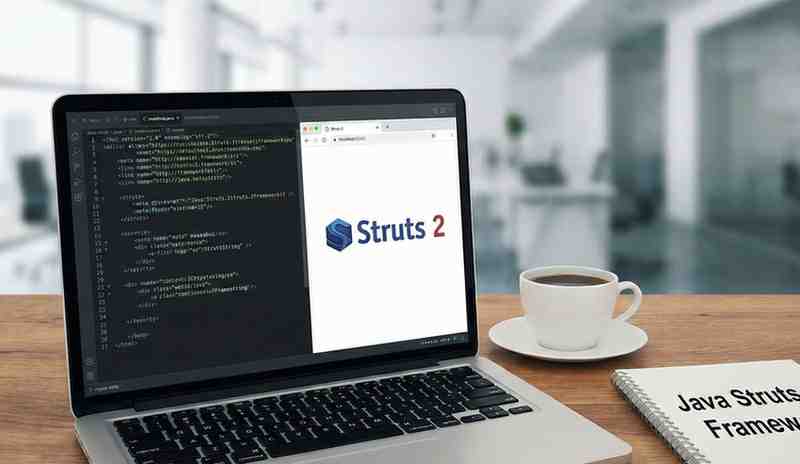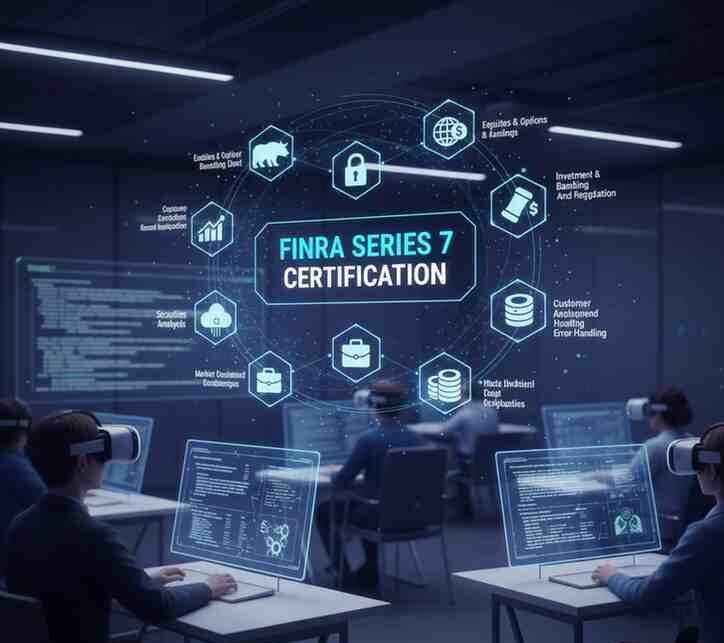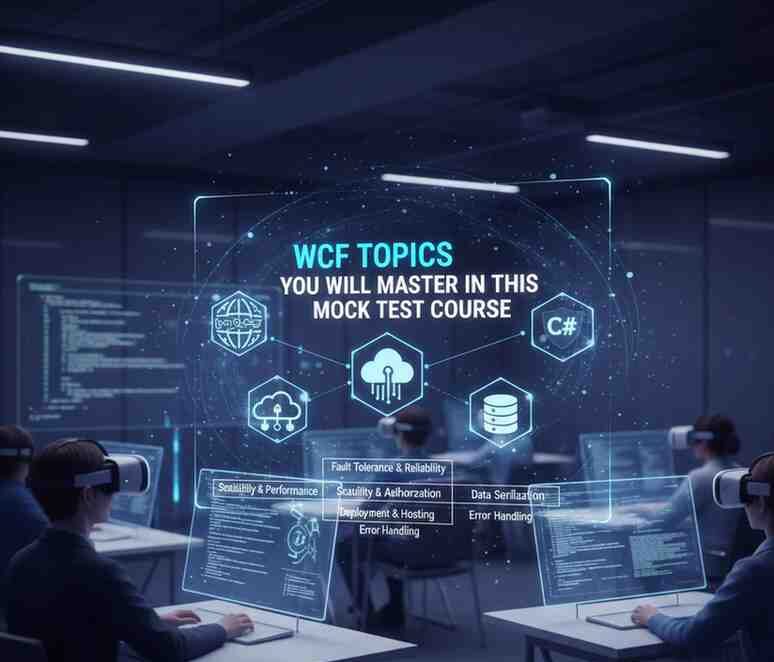Cognizant is a global powerhouse in technology and consulting, consistently shaping industries like healthcare, financial services, retail, and manufacturing with its cutting-edge solutions. As one of the top service providers worldwide, Cognizant excels in offering consulting, digital transformation, technology services, and outsourcing solutions. In this article – Top Project Manager interview questions at Cognizant, we will explore the company’s evolving work culture, its unique approach to project management, and key insights for aspiring candidates looking to join the organization.
🌐 Company Overview: Cognizant’s Global Presence and Services
Cognizant was founded in the United States and has grown into a true multinational corporation. With over 300,000 employees and offices across 40+ countries, it continues to be at the forefront of IT services and consulting.
- Key Services: Cognizant provides a diverse range of services such as IT consulting, application development, infrastructure services, digital transformation, and business process outsourcing (BPO).
- Industries: The company serves several key industries like healthcare, financial services, retail, communications, manufacturing, and technology. Cognizant’s expertise is especially valuable in sectors where digital innovation plays a pivotal role.
What sets Cognizant apart is its customer-first approach, which blends technology with business strategy, enabling clients to improve productivity, streamline operations, and enhance customer experiences.
🏢 Cognizant’s Culture: Collaboration, Innovation, and Empowerment
Cognizant champions a culture of collaboration, innovation, and client-centricity. This focus on inclusivity and empowerment fosters a workspace where employees can thrive, learn, and grow.
Key Cultural Elements at Cognizant:
- Collaboration & Teamwork: The company believes in the concept of “One Cognizant,” encouraging employees from various disciplines and geographies to work together.
- Innovation: Constant innovation is a cornerstone of Cognizant’s approach, driving both internal processes and the solutions it delivers to clients.
- Professional Development: The company invests heavily in learning and development, ensuring that its employees have ample opportunities for skill advancement and career progression.
- Diversity and Inclusion: Cognizant is known for fostering a diverse and inclusive workplace, empowering employees of all backgrounds to contribute their unique perspectives.
Core Values that guide Cognizant’s culture include:
- Client Success: Building long-term, trust-based partnerships with clients.
- Passion for Excellence: Striving for continuous improvement and high-quality delivery.
- Integrity & Ethics: Maintaining transparency and ethical practices in all engagements.
Profile Review & Recommendation
Expert-Driven Profile Review &
Recommendations

Let our expert look into your CV, Cover Letter, Naukri & LinkedIn Profile to turn your profile into the top 1% of professional profiles.
INR 1,999
- Naukri Profile Review & Recommendations
- Resume Review and Expert Recommendations
- LinkedIn Profile Review & Recommendations
- Cover Letter Templates Download
- Latest Resume Templates Download
- Personalized, tailored feedback
- ETA: 3- 5 Days
Self-Service Profile
Optimization

Access expert-curated guidelines, sample reviewed files, & step-by-step instructions to optimize your CV, Cover Letter, Naukri & LinkedIn Profile.
INR 499
- Guidelines for Profile Optimization (Resume, Naukri, and LinkedIn)
- Access to Sample Reviewed Files for inspiration
- Step-by-Step Instructions to reframe your profile
- Cover Letter Templates Download
- Latest Resume Templates Download
- Immediate access to the files
🛠️ Cognizant’s Approach to Project Management: Structured and Agile
At Cognizant, project management is seen as the heart of successful service delivery. The company uses structured methodologies while also embracing agile practices to ensure projects meet timelines and expectations.
Key Elements of Cognizant’s Project Management Approach:
Tailored Project Methodologies:
- Depending on the project, Cognizant utilizes a variety of methodologies such as Waterfall, Agile, and Hybrid approaches.
- Agile is a popular choice, especially in technology and digital transformation projects where iterative feedback and adaptability are crucial.
Strong Project Governance:
- Governance is key in maintaining clarity regarding roles, responsibilities, and decision-making. Cognizant has well-established structures to ensure smooth project execution.
- The company tracks projects through robust governance models that focus on delivering timely and efficient outcomes while minimizing risks.
Collaboration & Clear Communication:
- Collaboration is central to every project. Cognizant builds strong communication channels between cross-functional teams, stakeholders, and clients to avoid miscommunication and set clear expectations.
- The use of tools like Microsoft Teams, Jira, and Confluence helps streamline communication and task management.
Risk Management:
- Cognizant takes a proactive approach to risk management, identifying potential risks early in the project and developing mitigation strategies.
- Frequent risk assessments are conducted, helping teams prepare for unforeseen challenges and minimizing disruptions.
Continuous Improvement:
- Cognizant emphasizes learning from past experiences. Lessons learned from previous projects are documented and incorporated into new ones to optimize efficiency and outcomes.
- Teams are encouraged to focus on process improvement and use tools like Six Sigma for continuous refinement of project workflows.
Technology & Automation:
- Cognizant leverages cutting-edge technologies to enhance project management efficiency. The use of data analytics, AI, and automation tools helps streamline processes, track milestones, and enhance decision-making capabilities.
🎯 Cognizant’s Interview Process and Rounds
| Interview Round | Description | Focus Areas | Preparation Tips |
| Technical Interview | This round evaluates your technical expertise, problem-solving skills, and familiarity with project management methodologies and tools. You’ll be expected to discuss previous projects, challenges, and solutions in detail. | – Project management methodologies (Agile, Waterfall, etc.) | – Be ready to share detailed project examples and how you overcame challenges. |
| – Technical tools (Jira, MS Project, etc.) | – Understand project management tools and be prepared to discuss technologies relevant to Cognizant. | ||
| – Project experience | |||
| Case Study Round | In this round, candidates are given a real-life scenario or project issue to solve. This is a practical assessment of how you would handle challenges, such as meeting tight deadlines, managing project risks, or dealing with client expectations. | – Problem-solving | – Practice with case study examples relevant to project management. |
| – Risk management | – Be ready to present your thought process and strategic approach to resolving issues. | ||
| – Strategic thinking | |||
| Managerial Round | Candidates interact with senior managers or leaders to assess leadership abilities, client management skills, and behavioral competencies. This round emphasizes how you handle teams, resolve conflicts, and make strategic decisions. | – Team leadership | – Prepare to discuss your experiences leading teams and managing stakeholder expectations. |
| – Conflict resolution | – Highlight your ability to make quick, strategic decisions and resolve conflicts efficiently. | ||
| – Client handling | |||
| – Strategic decision-making | |||
| HR Interview | The HR round assesses cultural fit, career aspirations, and willingness to relocate. Candidates should expect to discuss their resume in detail, including educational background, motivations, and long-term career goals. | – Career aspirations | – Be ready to explain why you’re interested in Cognizant and how your career goals align with the company’s vision. |
| – Cultural fit | – Highlight experiences that demonstrate flexibility and cultural adaptability. | ||
| – Relocation flexibility | |||
| Additional Insights | The entire process usually takes less than two weeks. Candidates should demonstrate both technical skills and strong communication abilities, as collaboration is key to success at Cognizant. | – Communication | – Focus on balancing your technical proficiency with interpersonal skills. |
| – Teamwork | – Practice clear, concise communication, especially when discussing past experiences and achievements. |
🚀 Cognizant’s Interview Questions: What to Expect and How to Prepare
When preparing for a Project Manager role at Cognizant, it’s essential to understand the various categories of questions you may face. These questions span across conflict resolution, project management methodologies, technical expertise, managerial skills, and personal experiences. Below, we break down key questions by topic and provide tips on how to answer and prepare effectively.
Conflict Management and Resolution
Cognizant places a strong emphasis on your ability to manage conflict and handle difficult situations, both within teams and with clients. Here are some common questions:
- How do you manage conflict in a team or with client stakeholders?
- Describe a situation where you helped resolve a conflict.
- How do you deal with a team that isn’t meeting deadlines?
- Give examples of conflicts you’ve handled in the past.
- How have you handled risk management across the board?
- How would you handle a real-life project issue or case study?
💡 Tip: When answering conflict resolution questions, use the STAR method (Situation, Task, Action, Result) to explain the situation clearly and how you resolved it. Emphasize your communication skills, ability to de-escalate tensions, and strategic decision-making. Prepare specific examples where you successfully navigated conflicts or risks.
Project Management and Methodologies
Cognizant will test your knowledge of project management methodologies and your ability to manage complex projects. Be prepared to demonstrate both theoretical understanding and real-world application.
- What was the toughest project you handled, and how did you address the issues?
- What project management methodologies do you use (Agile, Waterfall, etc.)?
- What deliverables are part of the initiation phase in a project?
- How do you manage teams remotely?
- How do you prioritize tasks in a project?
- How would you handle a client’s request that is out of scope or undeliverable?
- What are your thoughts on Agile and other PMO best practices?
💡 Tip: Show your flexibility by discussing various methodologies you’ve worked with. For instance, mention how Agile allows for flexibility and quick pivots, or how Waterfall is ideal for projects with fixed deadlines. Be ready to talk about specific projects, your role in setting priorities, and handling scope creep.
Technical Questions and Tools
Technical expertise is critical in many Cognizant roles, even for project managers. Expect to be tested on your familiarity with tools and technologies that align with the company’s projects.
- What tools and technologies have you used in project management?
- Do you have experience with Microservices, Docker, Kafka, or React?
- Basic Java coding questions (e.g., how does Java 8 Lambda work?).
- In-depth knowledge of APM tools like Dynatrace (DT) and AppDynamics (AppD).
- Explain the Java memory model or concurrent programming in Java.
- JMeter tool questions in depth.
- Core Java concepts, immutability class, and programming basics.
💡 Tip: You may not be coding daily as a PM, but it’s important to demonstrate your technical awareness. If asked about Microservices or Docker, explain how these technologies impact the teams you manage, and be ready to show that you understand the technical aspects your teams deal with. Brush up on tools like Jira, AppD, and Confluence as they are widely used at Cognizant.
Managerial Skills and Experience
Cognizant seeks leaders who can manage teams effectively, make strategic decisions, and maintain a positive client relationship. These questions will assess your managerial approach and decision-making.
- How do you deal with a team not meeting deadlines?
- Describe your operations experience.
- How do you build and report on client KPIs?
- How do you evaluate yourself as a leader?
- Tell me about a time when something went wrong in a project you were managing.
- What is your vision for this role?
- How do you protect your team from unreasonable client demands?
- Can you forecast future needs or project risks?
- Where do you see yourself in the next 5 years?
- Are you willing to work as a senior developer/senior tester if the project demands?
💡 Tip: Provide specific examples that show your leadership style and how you inspire teams to achieve success. When discussing failure or a challenging project, focus on what you learned and how you improved processes afterward. It’s essential to showcase adaptability and strategic thinking.
Personal and Career-Related Questions
Cognizant’s HR interview often dives into your career aspirations, personal background, and your fit within the company’s culture. These questions help assess your motivation and future goals.
- Tell me about your background and project management experience.
- What are your strengths and weaknesses?
- Why should we hire you for this position?
- Give an example of a complex project you’ve managed.
- What motivated your job change?
- Where do you want to see yourself in the next two years?
- Are you willing to relocate or be flexible with timings?
- When do you see yourself leaving our company?
💡 Tip: Be honest but strategic in your responses. For example, when discussing your strengths, highlight qualities that directly align with the job (e.g., problem-solving or leadership). For weaknesses, mention a past challenge and what you did to improve. Cognizant values a growth mindset, so emphasize your desire to learn and adapt.
Domain-Specific and Skill-Related Questions
In this round, expect questions that assess your knowledge in the specific domain relevant to your role, such as performance engineering, strategy consulting, or data warehousing.
- What is your knowledge of SAP SCM and business processes?
- Describe your experience with ITIL support.
- How do you handle performance engineering challenges?
- What’s your experience in strategy consulting?
- Explain a schema for a data warehouse.
💡 Tip: If your role involves domain-specific knowledge, dive into specific technologies, frameworks, or systems you’ve worked with. Be ready with examples where you applied these skills to real-world projects. For performance engineering roles, explain how you’ve optimized systems to meet high availability or performance standards.
🔑 How to Prepare for Cognizant Interviews
- Research the company: Understand Cognizant’s business model, its approach to project management, and the industries it serves.
- Prepare real-life examples: Whether it’s handling conflicts, managing tough projects, or using technical tools, ensure you have specific examples ready to share.
- Practice case studies: Cognizant values problem-solving, so practice case study-based questions where you may need to come up with strategic solutions to project issues.
- Stay updated on technologies: Even if you’re not a developer, familiarize yourself with technical tools and concepts relevant to your role, such as Microservices, Java, or Agile tools.
- Show leadership and adaptability: Cognizant seeks leaders who can navigate complex environments and make tough decisions. Highlight examples where you showed resilience and strategic leadership.
🌟 Conclusion: Why Cognizant Stands Out in the Global Market
Cognizant is a company that thrives on collaboration, innovation, and excellence. Its inclusive work culture, commitment to client success, and strategic approach to project management make it a leader in the industry.
Whether you’re aiming to join Cognizant as a technical expert, project manager, or consultant, the company provides an environment where you can grow professionally and be part of impactful projects that shape the future of technology.

